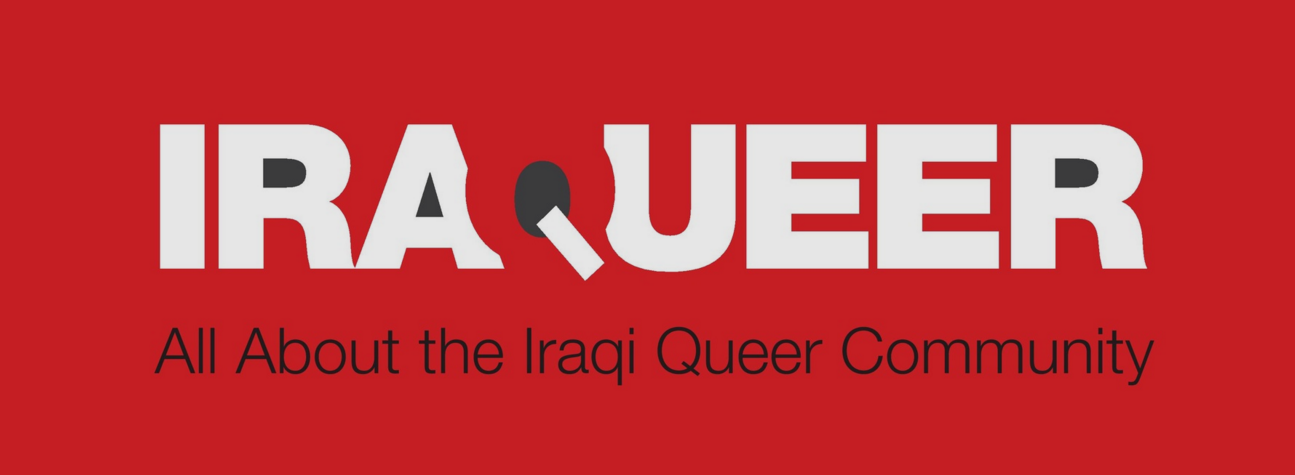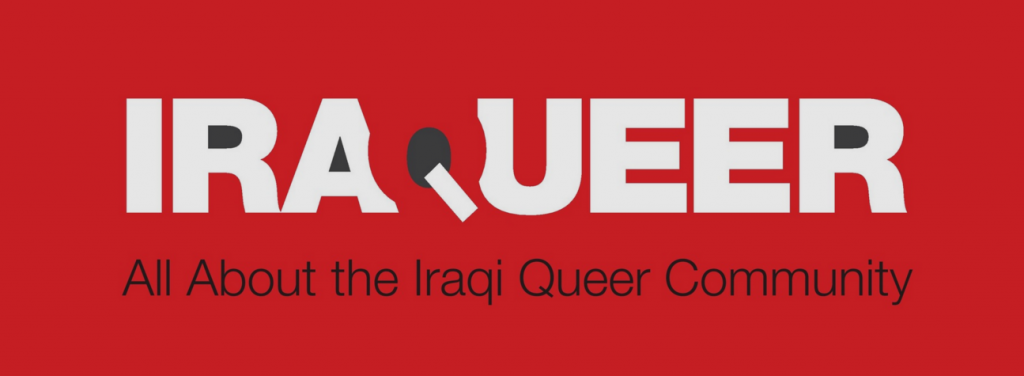Amir Ashour is a human rights activist and the founder of Iraqueer, the first and only organization for the LGBTIQ+ community in Iraq and Kurdistan region. IraQueer aims at increasing the visibility and the awareness amongst and about the local LGBTIQ+ community. In a region where homosexuality is criminalized and queer people face horrific violence, this is a radical and courageous step. The organization has been featured in international media outlets including Out Magazine, Haaretz, and the Huffington Post. Ashour left Iraq in 2014 and is currently living in Sweden.
Morgan: Since you started Iraqueer, what has the response been from people in Iraq who are aware of it? Is the response what you expected it to be? Have you gotten a response from queer people still living in Iraq?
Amir: We’ve received a rapidly growing response to our work in general. But also inside Iraq and from Iraqis. Our website received more than 8000 readers in November. And we continue to receive messages and emails from members of the LGBTIQ+ community in Iraq who are showing their hopefulness since this is the first time an NGO/entity is present that is fully and solely dedicated to representing the community in Iraq. Our team of 22 people are mostly residing inside Iraq which is why we do get a lot of response and feedback from the queer community there and that’s the basis of a lot of the work we do. We now are directly and indirectly connected to more than 400 people through our team, but also thousands of Iraqis through our website and social media accounts. The “Journals” we are publishing are attracting a lot of attention, but also represent a healing process for the story owners who are most likely writing their stories for the first time.
We have also received negative reactions from people and different online blogs. A number of people have been attacking what IraQueer stands for. A lot of them have been attacking me claiming that I’m doing this for fame. Others say that we are a disgrace to the society as we’re bringing immorality and encouraging “sodomy” among the youth.
Morgan: In 2014, you gave a talk at the University of Kurdistan Hawler about gender norms, where you discussed the difference between gender, sex, and sexual orientation and talked about how gender norms are socially constructed. How receptive are Iraqi people to these ideas? How do they fit in with existing cultural ideas about gender roles?
Amir: That talk put me through a lot of problems. I’ve been directly and indirectly threatened. I remember clearly the room being full and gradually people started to leave when I started talking about the “sensitive parts” of my talk. I spoke to the university trying to get a copy of my talk some months ago, and they told me that some of the talks had been destroyed “unintentionally” and that my talk is one of them. Like any community in the world, some people in Iraq received it well. Some didn’t. But unfortunately, the majority didn’t. And what scares me is that people in powerful positions and in academia are a part of those who don’t.
Morgan: Iraq has obviously faced a lot of political changes in the last few decades that have brought social changes as well. How has the visibility of the queer community, public attitudes, and government policy towards queer people changed? Have things improved or gotten worse?
Amir: Things have been much worse since the US invasion in 2003. And it’s getting even worse lately. In August of 2015, Iraq criminalized homosexuality. In April this year, an Iraqi TV station was talking about homosexuality and all the calls and messages from the audience and the presenter were stating that it’s an illness and a phenomenon that needs to be eliminated. A lot of the messages were encouraging the killing of gay people. That was discussed publicly on TV. The militias have more freedom because the government is claiming to be fighting terrorism. And everyone knows what ISIS is doing to people but especially gay men by throwing them off of buildings, and killing them.
Morgan: On the Iraqueer website, you describe killing and torture campaigns that queer people face at the hands of religious militias. Who controls and funds these militias? Under what circumstances could they be stopped? What can be done at a national level, international level, etc., and what, realistically, will be done?
Amir: The funds in general depend on the militias itself. Some are funded by Iran. But one of them for example (Asaeb Ahl Al-Haq) partnered with the Iraqi government under the name of fighting ISIS together which is giving them more space to kill even more people. Asaeb Ahl Al-Haq is the main implementer of the execution campaigns against gay men.
They can not be stopped at this moment because the way to stop them which is making these crimes punished by the law is not something the Iraqi government is willing to talk about or even admit that it’s happening. And criminalizing homosexuality just makes it harder to do so.
The Iraqi government needs to stick to human rights standards that it agreed on during the different treaties that they ratified years ago, and the international community needs to hold Iraq accountable for not committing to them. Donor states need to play a vital role in this issue, and they need to include civil society organizations and not only rely on what the government is saying. There needs to be laws that at least protect people from being killed. Both activists and the general LGBTIQ+ community face death threats for existing!! This violates human rights standards on so many levels, and yet neither the local or international governments are even willing to shed some light on it.
Morgan: How are the experiences of queer women in Iraq different from or similar to the experiences of queer men? Are they subject to the same forms of oppression and violence?
Amir: Women are not subjected to the same form of violence as men. The killing campaigns largely target gay men especially those who are more feminine, which means you could be straight and feminine and still be a target. But queer women in Iraq face double discrimination, both because they are women, and queer. Forced marriages are a big problem for women especially in the Arabic speaking cities of Iraq. Women in general are not allowed to have sexuality outside of a heterosexual marriage. Queer women in Iraq are absolutely the most underrepresented part of the community.
Morgan: Iraq’s political situation poses a lot of challenges for activists hoping to change policy. What do you think is the most effective way to create change and protect queer people while things are so unstable?
Amir: The Iraqi government is pretending to be fighting “terrorism” while they’re causing terrorism themselves. The best and most effective way to protect people and give change a real chance is to have protective laws that ensure the safety of people regardless of their sexual orientation and ensure the safety of people working with these issues who can through their work raise awareness in schools, universities, workplaces including governmental departments. But facing death simply because someone is born gay, or because someone is raising the visibility of that community is a major obstacle that will make it almost impossible to start a movement.

